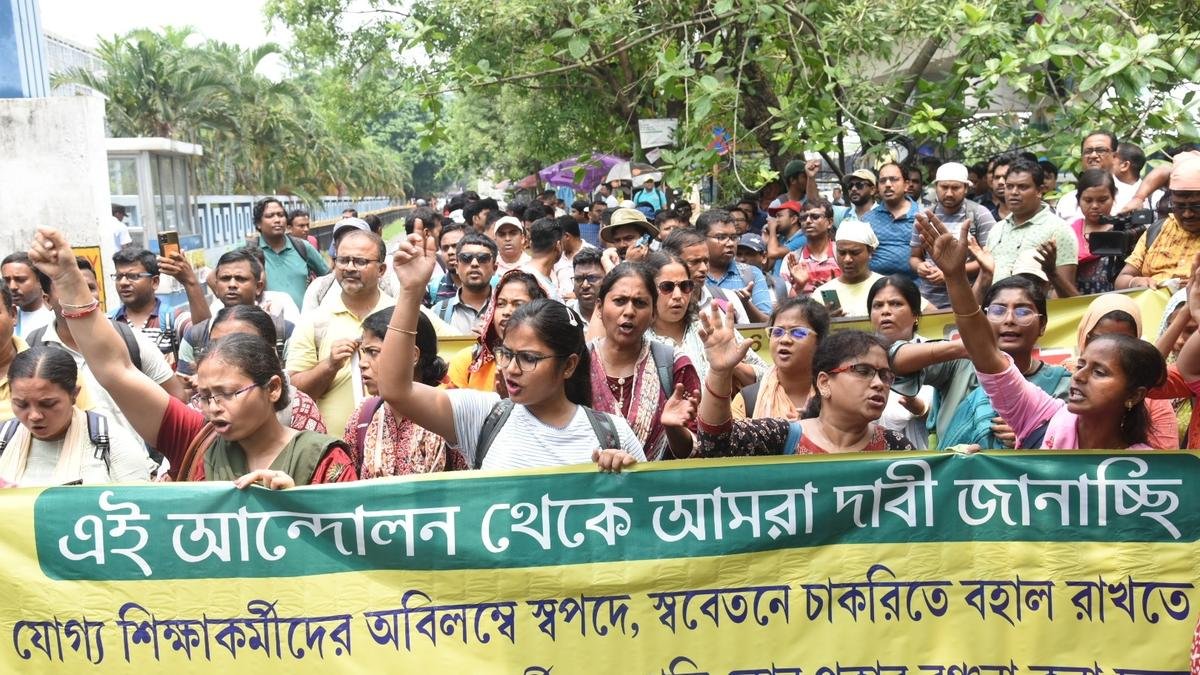Calcutta High Court seeks West Bengal govt’s stance on honorarium to non-teaching staff dismissed by SC. Awaiting verdict.
HC reserves decision after grilling State on continued payments
The Calcutta High Court on Monday (June 9, 2025) demanded an explanation from the West Bengal government regarding its decision to provide monthly honorariums to non-teaching staff dismissed following an April 3 Supreme Court verdict. These employees, although sacked, are currently receiving government funds while staying at home — a move now under judicial scrutiny.
A bench comprising Justice Debangshu Basak and Justice Shampa Sarkar reserved its decision after hearing both the petitioners and the State’s legal counsel. The court’s central concern revolved around whether disbursing public funds to individuals no longer legally employed was permissible or prudent.
Background: Apex Court’s April 3 Ruling
The controversy stems from the Supreme Court’s direction in State of West Bengal v. Anup Kumar Saha & Ors. where it found large-scale irregularities in the recruitment of Group D and clerical staff across state-run schools. The apex court invalidated appointments of over 800 non-teaching employees, citing procedural fraud and manipulation of selection lists.
In the aftermath of the ruling, the West Bengal government maintained that until fresh appointments are made, the dismissed staff may continue to receive honorariums “on humanitarian grounds.” However, critics argue that this undermines the sanctity of the Supreme Court’s decision and sets a dangerous precedent in public administration.
Petitioners Allege Misuse of Funds
The current petition — filed by a group of civil society activists — alleges that such payments amount to “misuse of taxpayer money”, especially when these individuals have already been found to be unlawfully appointed.
“The State cannot bypass the Supreme Court by granting post-dismissal benefits under the garb of humanitarianism,” argued Advocate Abhishek Sen, appearing for the petitioners. He further stressed that any financial benefit extended after a judicial nullification could be construed as contempt of court.
State Defends Its Position
The Advocate General for West Bengal, Mr. Soumendra Nath Mookherjee, told the High Court that the payments were “interim reliefs”, designed to prevent financial hardship until the State completes a new round of transparent recruitment. “This is not salary; it is honorarium based on extenuating circumstances,” he argued.
However, the Bench was not entirely convinced. Justice Basak pointedly asked, “If the Supreme Court has declared their appointments illegal, how does the State justify continued payment?” Justice Sarkar added, “Can humanitarian aid override a binding judicial verdict?”
Decision Reserved: A Constitutional Tension
The court has reserved its decision, indicating that a ruling will come after due deliberation. The case now sits at a critical intersection of constitutional law, employment jurisprudence, and fiscal accountability.
This judgment could set an important precedent on the extent to which States can exercise discretion in matters where judicial invalidation has already occurred.
Internal Links
For more on legal developments, visit The Legal Observer and our National News section. You may also explore Views – Insight for commentary on judicial accountability.
External Link
For live legal analysis, visit our YouTube channel.




